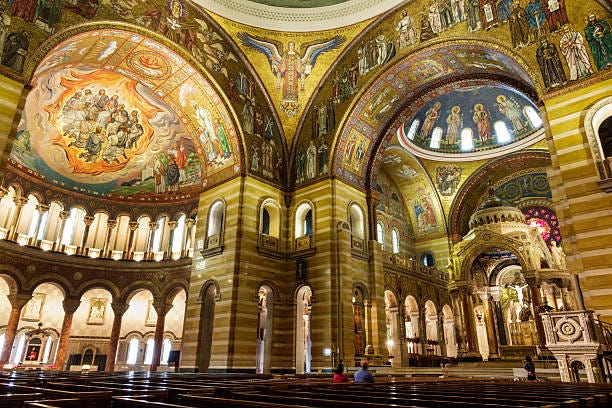
Last week, the Archdiocese of New Orleans proposed a $180 million settlement to 600 claimants who were victims of sex abuse by clergy members, a settlement that Archbishop Gregory Aymond said, “offers a path to healing for survivors and for our local church in the Archdiocese of New Orleans.”
However, the offer remains tentative, as many legal representatives of claimants oppose the settlement offer, which can only be passed with a two-thirds majority vote. Additionally, advocacy groups are lobbying survivors to vote against the proposed settlement, in hopes of securing a more favorable outcome.
Times-Picayune staff writer Stephanie Riegel joined WWL to explain where the case stands and what this means both for victims and local catholic parishes as the church attempts to navigate itself out of the bankruptcy proceedings related to the sex abuse scandal it's been embroiled in since 2020.
“There is a very influential and vocal group of plaintiff attorneys who individually represent many of the abuse survivors, and they are not on board with this plan,” says Riegel. “And they don't feel that their interests and the interests of their clients were represented in the negotiations, the mediations that have taken place behind closed doors to arrive at this figure.”
Everything first unraveled in 2018, when the church released the names of 57 sexual abusers within the New Orleans Archdiocese.
A federal case was filed in 2020 as hundreds of abuse victims came forward. In response, the Archdiocese of New Orleans filed for Chapter 11 bankruptcy in an attempt to limit liability as it sought revenue sources for the eventual settlement.
“The official court-appointed committee,” says Riegel, “had come up with a plan that amounted to nearly a billion dollars, including insurance money, and also a whole list of potential revenue sources from selling stained glass windows in the St. Louis Cathedral. To sell gold chalices out of the Archdiocese headquarters safe and so on.”
However, there's still a significant window for additional victims to file claims.
Riegel explains, “Our legislature opened the window allowing people more time to file claims of past abuse, that window is now open until 2027, regardless of how long ago the abuse occurred. We have seen hundreds more claims.”
Once a final number is deided, Riegel says that an “Independent trustee that's actually appointed by the committee that represents survivors will determine which claims get a specific amount of money.”
Once a final number is decided, Riegel says that an “Independent trustee that's actually appointed by the committee that represents survivors will determine which claims get a specific amount of money.”
Another large factor is the church’s strategic decision to file for bankruptcy, which, if successful, could limit its liability and protect assets. However, a court ordered the Archdiocese to appear in court on June 26th to defend why its bankruptcy claim should not be thrown out.
Riegel explains, “Part of this tentative settlement envisions the parish is essentially going into bankruptcy, which would enable them to set their own bar date, basically, giving...abuse survivors say a month or two—45 days is the number I've heard—to come forward and file claims against individual parishes.
“Once that deadline expires,” Riegel continues, “the parishes would supposedly be shielded from liability in the future...This plan sort of envisions protections for the church and for the parishes, and gives survivors more time to come forward and file claims.”
“They will file what is called a pre-packaged bankruptcy," Riegel says. "This would shield their assets from future liability, and in return, they will have to agree to put up a part of the settlement.”
Through the five-year legal battle, the church remains unsure of the total sum they'll owe or where they'll source the money.
“We don't know yet how many tens of millions their contribution will represent or even where the money will come from,” says Riegel. “In some parishes, it came out of an endowment or…parish reserves. And in other parishes, it had to come out of the pockets of the people in the pews.”
“I'm just being hypothetical here," Riegel concludes. "I don't want people to think their parish is going to close or that they're going to have to write a $10,000 check to bail out the church, because I'm quite sure that's not going to happen. But we're not entirely clear yet what will happen.”

